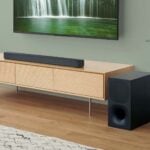Scott DS
Auditioning
- Joined
- Jul 21, 2004
- Messages
- 2
First time poster here- I've been combing through a lot of posts and have really enjoyed everyone's insights and knowledge!
Getting to it, I am very close to starting to finish my basement. Its a two story house (ten yrs old) and the basement only had the foundation walls studded, insulated adn vaporlocked. I am going to build a quasi home theatre room in the main area and have decided to dry wall the ceiling. Due to many annoying pipes and ducts, a good chunk of the drywall will be attached to wood strapping rather than the floor joists. My first inclination was to think that insulation between the drywall and floor above would be a good idea for soundproofing purposes. Talking to some people in the construction business, they seem to think that insulation would not be worth time or expense, and that the dead air space (which would be considerable) would be just as effective for deadening noise.
What are the experts opinions on this? I know in an ideal world, I would be building a room within a room, but my case its not a practical solution. I'd hate to go to all the effort of finishing the basement, filling it with top notch audio equipment, and then have a whole house rattling experience every time I wanted to crank it up a notch or two!
sorry for the rambling message, and I look forward to any responses.
Scott
Getting to it, I am very close to starting to finish my basement. Its a two story house (ten yrs old) and the basement only had the foundation walls studded, insulated adn vaporlocked. I am going to build a quasi home theatre room in the main area and have decided to dry wall the ceiling. Due to many annoying pipes and ducts, a good chunk of the drywall will be attached to wood strapping rather than the floor joists. My first inclination was to think that insulation between the drywall and floor above would be a good idea for soundproofing purposes. Talking to some people in the construction business, they seem to think that insulation would not be worth time or expense, and that the dead air space (which would be considerable) would be just as effective for deadening noise.
What are the experts opinions on this? I know in an ideal world, I would be building a room within a room, but my case its not a practical solution. I'd hate to go to all the effort of finishing the basement, filling it with top notch audio equipment, and then have a whole house rattling experience every time I wanted to crank it up a notch or two!
sorry for the rambling message, and I look forward to any responses.
Scott





